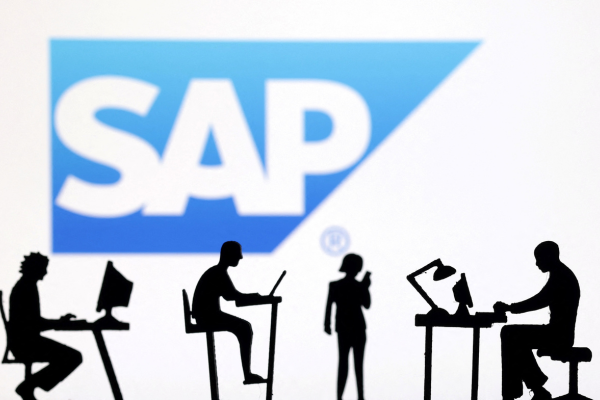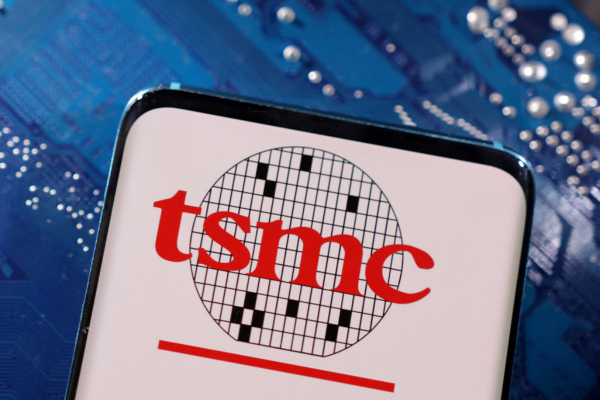American View: Will Missing Out on the AI Hype Train Doom Your Organisation?

NO! No, it won’t, full stop.
Sorry; normally it’s customary to start a column with a catchy paragraph that sets up the author’s argument. In this case, I felt it was essential to state my position first, before anyone has time to reflexively click off the active window or close the page. I’m sorry if this isn’t something people want to hear, but it’s the awful truth.
For context, I’m not just taking this position because I’ve been bombarded with frenzied sales pitches about “AI-enhanced” everything from spreadsheets to citronella candles will cure everything from process inefficiencies to gout. The “Power of AI” is now the must-have additive in every conceivable product, service, and consultation. It’s a magic word, an incantation meant to conjure up spare budgetary resources for “game changing” and “world class” business transformations … if you believe the marketing drones. It’s just hype.
Remember when blockchain mania swept through the global sales weasel community like turbocharged SARS CoV2? I remember in 2016 when Nick Spanos tried to convince us to migrate the entire process of conducting elections to the blockchain at the Libertarian Party Convention. His idea was immediately rejected. Blockchain tech was then, and still is, a solution in search of a problem. After the 2016 US presidential election, it was proven beyond a shadow of a doubt that there had been no widespread voter fraud … the supposedly existential “problem” that Mr. Spanos claimed he was trying to “fix” by overcomplicating a well-established, reliable, and cost-effective system. I’m not suggesting that Mr. Spanos was lying about the utility of his proposal; only speculating that he was so interested in the hot new technology that he – like so many others at the time – wanted to use it everywhere, and in everything, as a mystic cure-all. “Put it on the blockchain!” is still a rallying cry for fools and grifters.
That’s where we are in 2024 with AI: it’s a marketing enhancer that’s engineered to achieve sales through FOMA: the fear of missing out. If Peugeot adopts AI to design their next hot hatch and Volkswagen doesn’t, for example, will that “strategic advantage” put Volkswagen out of business? Not a chance. It’ll just cost Peugeot a ton of money, waste a bunch of time, and fail to deliver any competitive advantage (assuming it doesn’t accidentally create another Ford Pinto).

AI is prone to “hallucinations.” To the layman, these are confidently declared fabrications. Just like a five-year-old or an MBA, sometimes an AI tool just makes stuff up … Sometimes stuff that’ll get people killed if they act on it. Doesn’t seem this would be something you want creating consumer goods that already kill tens of thousands of people every year.
Don’t just take my word it. I’m not a data scientist. Nikhil Suresh of Victoria, Australia, however, is a data scientist and holds delightfully strong – and well-informed – opinions on the subject. In his 19th June essay I Will [bleep]ing Piledrive You If You Mention AI Again, Mr. Suresh took the business world to task for falling head-over-heels with AI sales hype. The opening to Part II of his essay begins:
“Unless you are one of a tiny handful of businesses who know exactly what they’re going to use AI for, you do not need AI for anything – or rather, you do not need to do anything to reap the benefits. Artificial intelligence, as it exists and is useful now, is probably already baked into your business’s software supply chain. Your managed security provider is probably using some algorithms baked up in a lab software to detect anomalous traffic, and here’s a secret, they didn’t do much AI work either, they bought software from the tiny sector of the market that actually does need to do employ data scientists. I know you want to be the next Steve Jobs, and this requires you to get on stages and talk about your innovative prowess, but none of this will allow you to pull off a turtleneck, and even if it did, you would need to replace your sweaters with full plate to survive my onslaught.”
I’ve never met this gentleman, but I must confess that I’m enthralled with his writing. Should we ever come across one another, Mr. Suresh will never need to pay for his own drinks. I urge everyone to read his column. Then read it again and take notes for your next discussion with Upper Management. You’ll need his core points ready at hand to save your team from getting stuck implementing an “AI-enhanced” whatsit that tanks morale and productivity.
Ahem! Where was I? Oh, right: It’s all sales hype. Even people who believe in Machine Learning’s ultimate potential caution against expecting unrealistic – miraculous, even! – results. Eric Siegel’s June 2023 piece The AI Hype Cycle Is Distracting Companies on Harvard Business Review warns: “‘AI’ suffers from an unrelenting, incurable case of vagueness — it is a catch-all term of art that does not consistently refer to any particular method or value proposition. Calling ML tools “AI” oversells what most ML business deployments actually do.” While Mr. Seigel sees potential benefit from ML technology, he’s opposed to overstating its potential, especially when it comes to ill-defined projects.
Opponents of AI hype are, as you’d expect, far less charitable. Last week, American comedian and professional nonsense debunker Adam Conover published a 75 minute long interview with a tech journalist titles The A.I. Bubble is Bursting with Ed Zitron. In the introduction to the topic , Mr. Conover quips: “Google has had to deal with the humiliation of people posting examples of their AI giving insane answers to boring normal questions … No, Google AI, you should not put glue in your pizza sauce … and it’s kind of weird that your brand new product told me that I should. So, there’s the suspicion growing that AI is nothing but marketing hype that it’s the same as crypto ‘Web 3’ and the metaverse … Just a new way for these tech companies to prop up their stock prices because they don’t have any other real ideas.” Ayup!

Most end users just want their tools to work properly so they can clear out their tasks and go home on time. Nobody asked for an onboard AI “assistant” to constantly interrupt their already stressful daily routine.
Could confirmation bias be negatively influencing my assessment of “miracle AI tech”? Yes. Of course it could. That said, I submit that bias alone isn’t enough to matter on this topic. The hype behind this “AI-cures-all-ills” sales trend is so obvious vacuous that it’s still astonishing how business keep falling for it. Journos are criticizing the trend. Consider Fast Company’s Chris Morris who wrote The 7 Weirdest AI Products at CES This Year o back in January. My favourite “AI-enhanced” items from his list was number 3: the “smart refrigerator.”
“Samsung’s going all in on the AI kitchen appliances,” he wrote. “but the most notable of the collection is the Bespoke 4-Door Flex refrigerator with its AI Family Hub. A smart camera will note which foods are being put in and taken out of the fridge, both packaged and fresh. (The appliance can identify 33 different fresh foods, Samsung says.) The refrigerator will send alerts when food nears its expiration date and will alert you when the water filter needs to be replaced.”
I cannot see a use case for this tech even if it were (a) free and (b) constantly evolved to track more than just 33 items. The only people I can imagine being interested in an “AI-enhanced” refrigerator are the Highland Park crowd who lead the way locally in conspicuous consumption as performance art. They’re the same folks who buy Ferraris and Rolls Royces, then drive them on Dallas’s notoriously awful and dangerous roads: it’s about showing off, not getting any actual value out of one’s purchases.
Hopefully I’ve made it clear that most of these “solutions” are, charitably, full of [bleep]. If you think I’m being too harsh, please be aware of the following article from 2001: Duke University’s ‘smart toilet’ utilizes artificial intelligence to monitor bowel health. As biotech writer Rachyl Jones dryly … ahem … explained:
“The attachment, which can be installed in any existing toilet, takes images inside the pipes, triggered by a flush. These images are then analyzed using AI, and the data stored in a digital health application. Additional research is being conducted for ‘Smart Toilet’ to provide a chemical breakdown of stool, allowing for quantitative results. This chemical analysis would enable early detection of disease without a patient having to leave their home.”

I dread being tasked to perform a comprehensive technology risk… er… assessment on the first network-enabled, AI-enhanced, PII/PHI processing, smart toilet that’s expected to integrate into the company’s secure network. Talk about a [bleep] assignment…
Is there clinical diagnosis and treatment potential in this application? Yes, I suppose so. But I’ll trust a clinical trial run by qualified medical professionals and scientists far more than I’ll ever trust a cheap consumer product that “upgrades” it’s appeal by slapping a sticker on the side of the box claiming it’s now “powered by AI!!!!!!”
Personally, I don’t see this sales hype cycle lasting much longer. I don’t expect that’ it’ll completely go away; there are some worth use cases for AI and ML tech. I doubt it’ll remain an effective sales inventive for much longer. Unfortunately, we’ll get something new (and just as silly) to replace it, like “Web 5” or “Xenon-Coated” to separate overeager executives from their discretionary funds. There’s always another miracle product right around the corner because all the previous miracle products failed to deliver on their outlandish promises.
I’d like to give Mr. Suresh the final word on this topic:
“In the case that [AI/ML] technology continues to make incremental gains …your company does not need generative AI for the sake of it. You will know exactly why you need it if you do, indeed, need it. … But if you don’t have a use case then having this sort of broad capability is not actually very useful. The only thing you should be doing is improving your operations and culture, and that will give you the ability to use AI if it ever becomes relevant. Everyone is talking about Retrieval Augmented Generation, but most companies don’t actually have any internal documentation worth retrieving. Fix. Your. [bleep].”
That’s the painful truth: focus on getting your fundamental processes sorted. “AI” can’t save you from yourselves. You’ll get far more value out of defining, standardizing, optimizing, and improving your core business functions than you’ll get out of any “miracle” product … and it’ll cost considerably less, too.

Keil Hubert
You may also like
Most Viewed
23-29 Hendon Lane, London, N3 1RT
23-29 Hendon Lane, London, N3 1RT
020 8349 4363
© 2024, Lyonsdown Limited. Business Reporter® is a registered trademark of Lyonsdown Ltd. VAT registration number: 830519543





